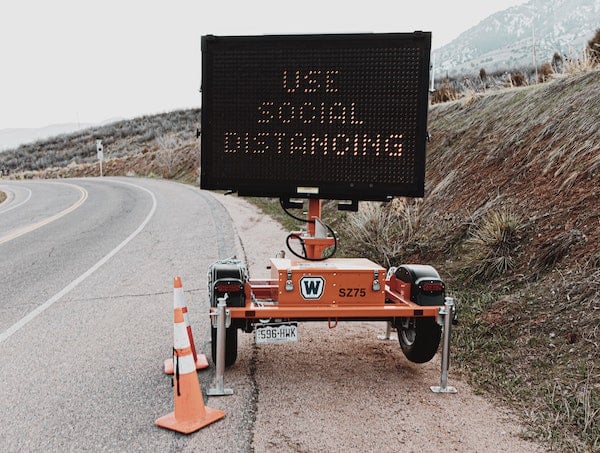Published on
Workforce Development Responds Directly to the COVID-19 Pandemic

Of the responses to the COVID-19 pandemic, workforce professionals are reaching out to healthcare partners to identify ways to be of service. A partnership between county health departments, healthcare facilities and Clark State Community College resulted in one of the first ever contact tracing programs in the country.
In early May, Ohio Governor Mike DeWine, identified the need for contact tracers, predicting that the state would need nearly 2,000 by the end of June. The Centers for Disease Control (CDC) defines contact tracing as “a core disease control measure employed by local and state health departments.” It has been used for decades and is a key strategy for preventing further spread of diseases such as COVID-19.
The CDC website encourages communities to scale up and train a large contact tracer workforce and work collaboratively across public and private agencies to stop the transmission of COVID-19. The CDC also states that to be done effectively, contact tracing requires people with training, supervision and access to social and medical support for patients and contacts.
Trainees should be versed in:
- Background on COVID-19
- Epidemiology
- Signs/symptoms
- Updates on current emergency responses
- Ways to prevent the spread of COVID-19
- General precautions (e.g., social distancing)
- Specific precautions for those potentially exposed to the virus or presenting symptoms:
- Testing
- Contact tracing
- Quarantine
- Isolation
- Follow-up
- Other ways to reduce spread
Clark State’s workforce & business solutions began immediately responding to this workforce need by working with appropriate healthcare faculty to develop the curriculum in collaboration with community partners. Community and workforce partners developing this program include Greene and Clark County Public Health Departments, Ohio Department of Jobs and Family Services of Greene and Clark Counties, healthcare providers, and area Chambers of Commerce. One of Clark State’s partners, Greene County Public Health Director Jennifer Barga, remarked, “With states opening and stay-at-home orders loosening, there are concerns about managing COVID-19. Contact tracing is the best tool public health has to offer. Contact tracing works to protect the public because it helps identify exposed individuals quickly and notifies them so they can adequately quarantine to prevent the spread of disease. Clark State recognized the need for contact tracers and created a comprehensive program to teach contact tracing skills. We appreciate their willingness to empower those who want to help by partnering to fight this fight.”
The final product became a six-part, self-paced course on contact tracing to assist local businesses re-opening with modified operations. The program results in a non-credit certificate; however, the program can transfer into specific degree healthcare programs at Clark State, such as the Associate of Science in Health Science.
Specialized training is offered in an online format to anyone who interested in learning the Center for Disease Control and Prevention’s (CDC) protocols for proper COVID-19 contact tracing. This short-term training will quickly give individuals the confidence and knowledge to fill the immediate and important need for contact tracers. Following CDC training guidelines, individuals will learn motivational interview techniques, risk communication, cultural and diversity sensitivity, understand healths privacy, terminology and continuous improvement.
This program has been valuable to Clark State business and industry partners, providing cost-efficient training to share internal knowledge with employees and create protocol to handle internal tracing if and when an employee tests positive for COVID-19.
The first group of seventy students began the program on May 26th, 2020, and many have now completed it. One of the students remarked, “This course is going to help a lot of people help others as we fight this disease. What I really like is the fact that so much of the material can be used in our day-to-day lives. By that, I mean being sensitive to other’s needs and feelings and not assuming what they are going through.” The contact tracing program has gained national attention, with many community colleges reaching out to collaborate in offering the program. For this reason, Clark State has developed a revenue share agreement that allows colleges to deliver the curriculum under their banner but dramatically reduces the cost, as the curriculum has already been developed. Additionally, creating contact tracing jobs are is strategy for re-employing dislocated workers. Community colleges are always closely linked to the communities they serve, but this program demonstrates our responsiveness, leadership, and visibility in workforce solutions.
Disclaimer: Embedded links in articles don’t represent author endorsement, but aim to provide readers with additional context and service.
Author Perspective: Administrator



